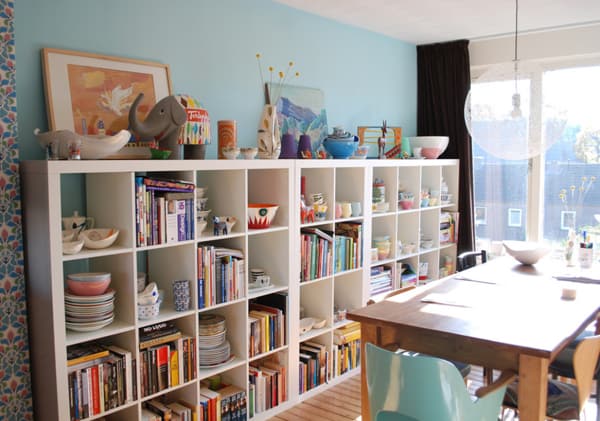A study published in the Personality and Social Psychology Bulletin found that women who perceive their homes as cluttered or full of unfinished projects tend to have increased levels of cortisol, a stress hormone. Your home, which should be your sanctuary, may ironically be contributing to mental health issues if it is not organized or clutter-free. This blog post aims to help you in maintaining clutter free homes to create a more serene and clutter-free environment to enhance your mental wellness.
The link between Mental Wellness and an Organized Home
Research has shown that there is a direct correlation between mental health and the state of your surroundings. A tidy, organized space can contribute to feelings of calmness, while a cluttered environment can lead to feelings of anxiety and overwhelm. When your external environment is in chaos, it can mirror and amplify internal turmoil you might already be experiencing. Thus, maintaining a clean and tidy home isn’t only beneficial for appearance’s sake but ways beyond for your mental wellness.
The Psychological Impact of Clutter
Clutter can cause significant psychological distress. It distracts us, inhibits creativity, and makes it difficult to relax. Moreover, the mere sight of clutter can trigger guilt (“You should be more organized!”) and frustration (“Why cannot find anything!”). This emotional turmoil takes a toll on mental wellness, making day-to-day life more stressful than need be.
Benefits of a Clutter-Free Home
On the flip side, decluttering offers numerous mental health benefits. A well-organized home reduces anxiety, helps you focus better, enhances sleep quality, increases productivity, and even improves relationships. It creates a sense of tranquility and control over your environment which translates into a feeling of general satisfaction with life.
Steps to Create a Clutter-Free Home
Conquering clutter can seem overwhelming, but with a systematic approach, it can be manageable. Begin with one room at a time. Decide what you want to keep and what can be thrown away or donated. Use smart storage solutions to keep the things you do keep well organized.
The Importance of Starting Small
If the process of decluttering your entire home feels mind-boggling, start small. Pick a single drawer, corner, or even a pocket of your purse to organize first. You will quickly experience the psychological benefits and be motivated to tackle larger areas.
Methods for Decluttering
There are several popular methods for decluttering, each with its own philosophy and approach. The KonMari method encourages keeping only things that spark joy. The ‘Minimalist’ method recommends eliminating unnecessary items and living with fewer, meaningful things. Explore these methods to find what works best for you.
Organizing Your Possessions
A key element of decluttering is devising a system to effectively organize your possessions. Categorize items by their use, ensuring that things frequently used are easily accessible. Use storage containers or dividers for small items to prevent them from becoming disarrayed.
Involving Family in the Decluttering Process
Decluttering can feel like a lonely task if you are doing it alone. Involve family members in the process. Allow them to decide which of their possessions they wish to keep and which they can part with. This joint effort can make the process more fun and less overwhelming.
Maintaining an Organized Home
Once you have decluttered and started leading an organized life, the challenge is to maintain it. Regularly schedule time to tidy up and get rid of unnecessary items. This habit will help ensure that clutter does not accumulate over time.
The Power of Regular Cleansing
Cleaning regularly goes hand in hand with maintaining an organized home. It imparts a sense of freshness and renewal to your environment. This detoxification of your physical space also aids in purifying your mental and emotional state, enhancing overall mental wellness.
Embrace a Minimalistic Aesthetic
Embracing a minimalist aesthetic can be valuable in maintaining a clutter-free home. Opt for clean lines, simple patterns, and less ornamentation. This visual tranquillity helps foster psychological calmness, creating an environment ripe for relaxation and introspect.
Professional Help for Severe Clutter
If your clutter problem seems insurmountable or if it causes significant distress, consider seeking professional help. There are professional organizers and mental health professionals who specialize in helping people overcome issues related to severe clutter.
Final Thoughts
A clutter-free home does not mean living within bare walls or parting with personal treasures. It is about creating a space that promotes clarity and peace, helping elevate mental wellness.Taken step by step, making small conscious decisions to declutter your home can lead to a lifestyle that significantly contributes to improved mental wellness.
SME Paid Under

